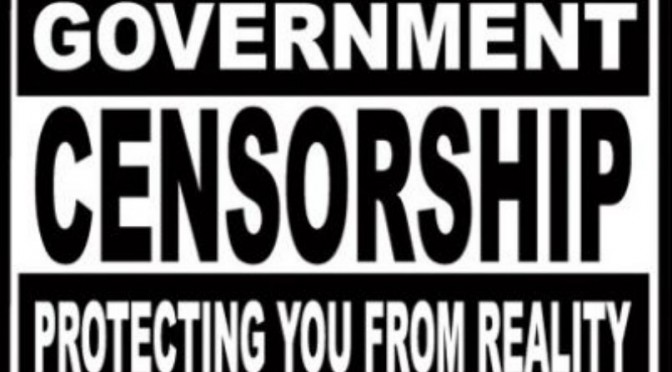This week, we learned that Ofcom is to be given censorship powers over social media and other web sites. This is merely the latest attempt by the regulator/censor to take control of online content.
For some years, this blog has covered attempts by the British state to censor the Internet. The original cover story for implementing this was an age verification system to ‘protect children from porn’. While this sounded reasonable on the surface, this idea required the state to be given the power to block websites that did not comply to the rules. And this required the creation of a state Internet censor with broad powers to block content. After spending more than a decade pursuing this goal, the government pulled the plug on the whole scheme last October; I explained the decision and the background here. In a later twist, the age verification industry announced last month that it is suing the government for cancelling the plans.
Behind the scenes, Ofcom has been lobbying hard. While Ofcom combines many roles and powers over the media and communications, of greatest concern (to me, at least) is its role as television censor. Not only does the regulator enforce tight controls over content broadcast in the UK, but it actually writes its own censorship rules. This effectively gives Ofcom the power to write British law without consulting Parliament, which is an astonishing amount of power for an unelected body to hold. And not only does Ofcom get to decide what is ‘illegal’, but it can issue huge fines to anyone who breaches its ‘laws’. Ofcom is thus judge, jury and executioner.
Broadcasters can be fined hundreds of thousands of pounds for breaching the Ofcom censorship code. Naturally, the end result is that British broadcasters self-censor in order to avoid the risk of being fined. The regime disproportionately affects smaller broadcasters, many of whom could barely afford a fine at this level.
Unsurprisingly, Ofcom’s censorship power is seen by many as a threat to civil liberties. Even David Cameron, in 2009 before he became Prime Minister, promised to cut Ofcom’s powers, and in particular to remove its undemocratic ability to write policy. Once he had been elected, however, his plans sank without trace.
The new announcement, in which Ofcom was officially put in charge of regulating the Internet, was widely expected. Few anti-censorship campaigners had believed that October’s announcement was a full-scale victory for free speech. The regulator will be given the power to fine sites that fail to deal adequately with two types of content: illegal and “harmful”. In the case of illegal content, Ofcom will check that sites act quickly to take down content which is criminalised, from terrorist propaganda to child abuse imagery.
Harmful content is harder to define, because it refers to content that is legal to publish, but might breach sites’ own standards. There is a long list of content categories potentially considered harmful, including sexual, nude or erotic content, violent content, information related to self-harm or suicide, and of course, the ethereal and ever-expanding category of “hate speech”.
Deciding what is harmful is very much a subjective decision, and will vary from site to site. Readers might remember the hilarity that ensued when – encouraged by the government – many ISPs rolled out parental control filters in 2013. The filters blocked all sorts of sites that did not appear to be in any way harmful, from the Liberal Democrats’ LGBT site to this blog. I still often receive messages complaining that Sex & Censorship is inaccessible from some places. This eventually mattered little, as most broadband customers simply switched their filters off anyway.
While Facebook may have the resources to police its user-generated content, most sites do not. Any site that accepts comments (for example, this one, as well as most news services), or hosts a forum, will likely be covered by the legislation. It is unclear, in any detail, who might be affected, and how. But one things is certain: Ofcom censorship of the Internet is set to become a reality.
Just as with the now-defunct Porn Block, we are at risk of being bounced into disproportionate and draconian action based on poorly-defined ‘harms’ and moral panics. Although it is easy to be swept up by carefully-orchestrated panics over hate speech, self-harm, bullying and other important issues, it is important that we do not allow the state to use these concerns to encroach on free speech.


